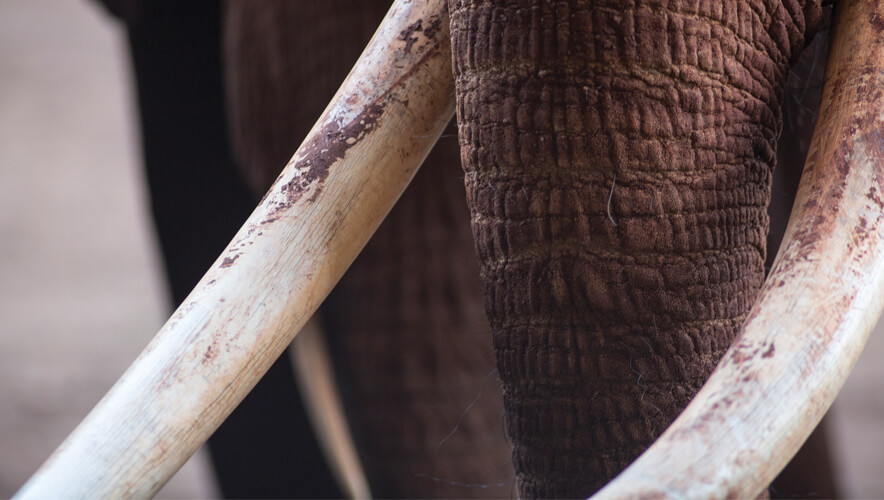Endangered and In Demand: Global Wildlife Crime Spikes
The illegal global trade in ivory is declining, but the illicit wildlife trade is far from extinct, according to the World Wildlife Crime Report, published in July by the United Nations Office on Drugs and Crime (UNODC).
Based on four years of data, the report found that national bans on selling ivory—especially China’s ban in 2017—have further eroded ivory trafficking since its peak in 2011–2013. Between 2016 and 2018, the annual income generated by ivory trafficking was $400 million, UNODC estimated, but prices paid to ivory poachers in Kenya and Tanzania for new product dropped by more than half from 2014 to 2018, signaling that demand for new ivory may be slowing.
Meanwhile, trafficking of pangolins—reclusive, nocturnal animals covered in scales that are often used in traditional Chinese medicine—has soared. Seizures of pangolin scales increased tenfold between 2014 and 2018; approximately 185 tons of scales were seized over that period, which would account for roughly 370,000 animals.

“They are now arguably the most heavily trafficked wild mammal in the world,” UNODC said.
According to the Global Environment Facility, the illegal wild animal trade is worth between $5 billion and $20 billion a year—frequently landing it in the ranks of narcotics, human trafficking, and the weapons trade as one of the most lucrative black markets in the world.
Corruption and bribery are common themes in the illicit wildlife trade, UNODC reported. Corruption at the sourcing, transit, and export stages often involves public and private sector abuse of power and trust, according to the report. The Organisation for Economic Co-operation and Development found in 2018 that corrupt actors in reported wildlife trafficking cases in four countries (Kenya, Uganda, United Republic of Tanzania, and Zambia) were most often police officers (32 percent), administrative government officials (19 percent), or military officers (17 percent).
A large share of illegally acquired wildlife, such as rosewood or European eels, is ultimately processed and sold in a legal market, disguising its illicit origins. Documentation and licensing can be disguised through fraud, forgery, and corruption. “In these cases, supply chain security is of the essence in protecting vulnerable species,” UNODC said.
